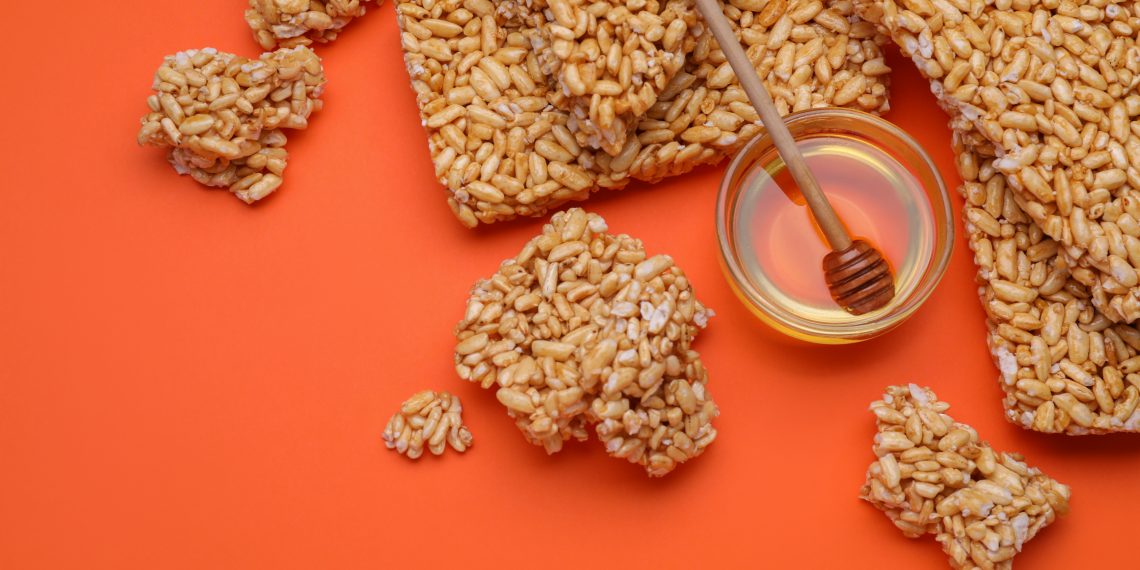In the midst of an ongoing “obesity epidemic,” health and fitness have become paramount concerns for North Americans. At the same time, refined, processed, and “added sugars” consumption, a known contributor to obesity, in the form of energy snacks and drinks is also increasing. Deloitte’s latest report reveals that the gym and fitness industry surged to over $91 billion USD globally in 2022, up from $73 billion in 2011, with the United States contributing to more than one-third of the industry’s total value. The commitment to exercise programs and physical fitness is on the rise among North Americans, and in tandem, the energy bar and energy drink industry has witnessed exponential growth. The energy bar sector, valued at $645 million in 2020, is projected to experience a 6.4% annual growth, reaching over $1 billion by 2028. This press release will examine how using energy snacks and drinks may work against your fitness goals and look at what makes raw honey a good alternative, healthy energy to power your exercise.
As more individuals embrace exercise and athletic pursuits, the association with increased consumption of energy bars and drinks appears inevitable; after all, athletes require an additional energy boost for their workouts. A substantial portion of energy bars and several popular energy drinks derive much of their energy content from added processed sugars. The health hazards associated with added refined sugar intake are becoming increasingly difficult to overlook.
Studies have demonstrated that a diet high in refined sugars can lead to weight gain, obesity, diabetes, an increased risk of heart disease, heightened inflammation, atherosclerosis and elevated blood pressure. Moreover, excessive sugar consumption may expedite cellular and skin aging due to the rapid blood glucose spike followed by an insulin surge, leading to a subsequent decrease in energy levels approximately thirty minutes after consumption. Overindulgence in processed sugar has also been linked to an elevated risk of cancer, cognitive decline, including a higher susceptibility to dementia and stroke, as well as an increased likelihood of gout.
While many popular exercise bars and drinks rely on processed sugars for energy, not all energy supplements are equal. It’s a good idea to look carefully at the ingredients. Even some that use “honey” in their name, marketing to the health-conscious athlete are packed with processed sugars, with only a token drop of honey for marketing purposes. Others supply energy in healthier forms of fruit and complex carbs. Note that the term “organic” does not mean healthy: Refined “organic sugar syrup” is still an added refined sugar with all the sugar-associated associated risks.
Considering the substantial risks associated with consuming excess refined sugars, it becomes evident that using processed sugars as a source of energy for cardio exercises is, at best, counterproductive. The impacts of exercise and refined sugars on cardiovascular health, obesity, blood pressure, and diabetes risk stand in opposition to one another. Opting for healthier alternatives, such as complex carbohydrates or naturally occurring sugars found in fruits, to fuel exercise sessions is a healthier choice. Notably, raw honey proves to be an especially suitable option, complementing and potentially enhancing various positive effects of exercise.
Although both processed sugars and honey contain similar molecules of simple sugars, the physiological effects on the body are vastly different. The current scientific thinking is that other natural compounds in raw honey, such as bee enzymes or other organic substances affect energy metabolism in various beneficial ways. Raw honey is known to directly stimulate the pancreas to release insulin. Upon ingestion, honey is efficiently converted to liver glycogen, providing the body’s immediate fuel supply. Liver glycogen supplies energy to working muscles (and the brain) in the short to medium term, lasting from about a minute to half an hour. In theory, consuming honey before or during exercise could potentially improve athletic performance compared with other energy sources by providing sustained energy that is accessible to the brain as well as working muscles. Though small studies have yet to demonstrate significant improvements in athletic performance, they do confirm that honey is at least as effective as other energy sources in terms of endurance and athletic performance, if not superior.
Contrast the list of health hazards linked to consuming refined sugars with the well-documented health benefits of consuming honey. Raw honey boasts antioxidant properties with extensive health benefits. A diet incorporating raw honey has been associated with lower triglyceride levels and increased high-density lipoprotein (HDL – commonly known as “good cholesterol”). The anti-inflammatory properties of raw honey may enhance workout recovery, alleviate inflammation of joints and surrounding tissues, and counteract immune suppression, a common post-exercise response that places athletes at a higher risk of infectious diseases.
Despite its high energy density, honey appears to impact metabolism in a manner that promotes weight loss, particularly in physically active individuals. In controlled studies comparing weight changes among individuals consuming measured doses of raw honey, water (placebo), or refined sugar, raw honey consumption has been consistently associated with weight loss in numerous clinical trials involving humans and animals. Remarkably, even when the total calorie intake is higher in the honey group compared to the refined sugar group, those who regularly consume honey experience greater weight loss or less weight gain.
Raw honey serves as a natural and convenient energy source. While authentic raw honey is more expensive than common manufactured sugars, pound-per-dollar or calorie-per-dollar, most raw honeys become cost-effective when compared to intensely and expensively marketed energy bars or drinks. By utilizing raw honey as an exercise energy source and post-exercise blood glucose replenish-er, not only can individuals avoid the counterproductive and harmful effects of processed sugars, but they can also benefit from an opposite (positive) impact in many instances.
As North Americans continue their pursuit of healthier lifestyles through exercise, they would be wise to be mindful of the fuel they choose to support their physical activities. Embracing natural alternatives like raw honey can contribute to a more wholesome and beneficial exercise routine, enhancing overall well-being and fitness outcomes.



















